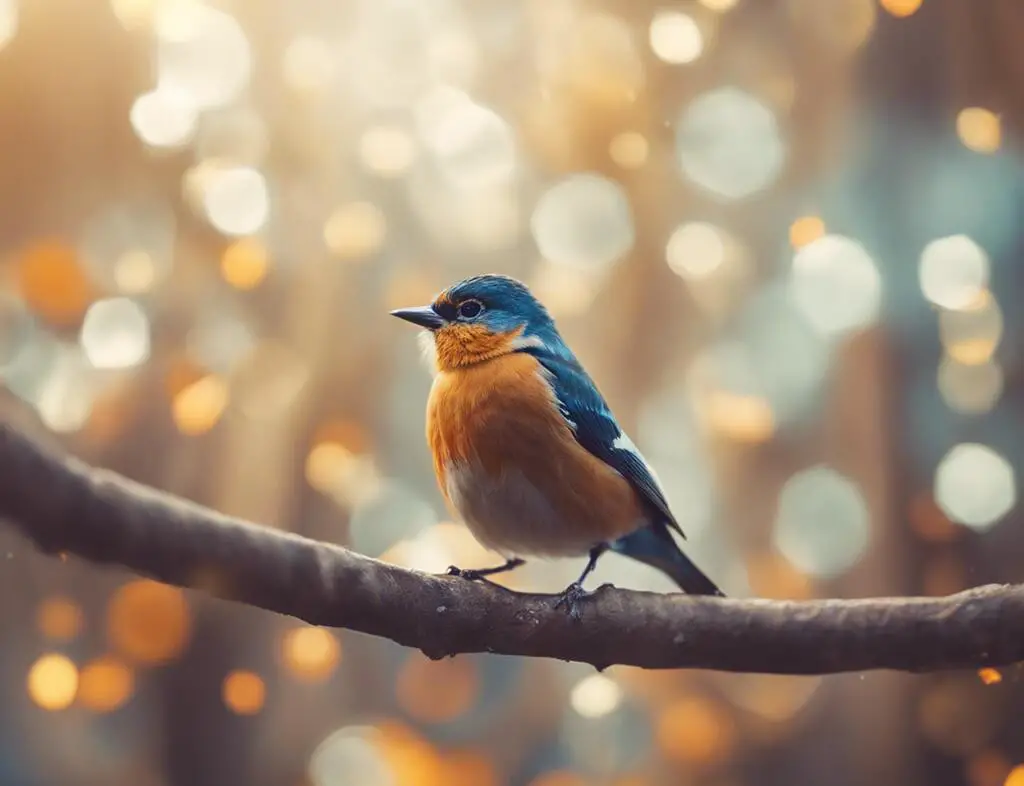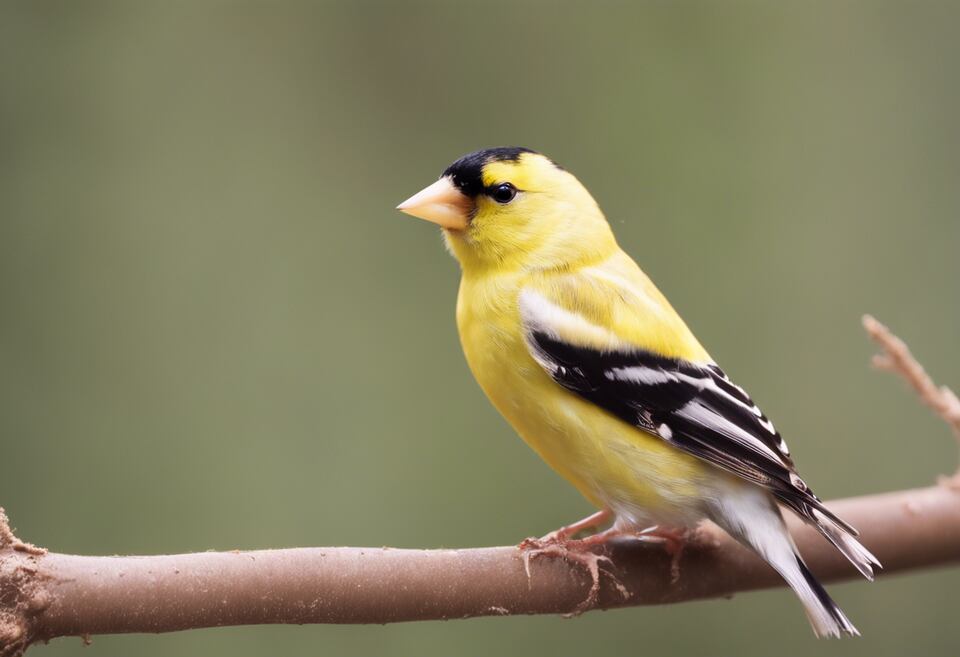Birds chirping non-stop is a common phenomenon that many of us witness, especially during the early hours of the morning. Have you ever wondered why these feathered creatures engage in such incessant chirping? There are several reasons behind this behavior, ranging from communication and territorial display to mating calls and environmental factors.
Table of Contents
Reasons Behind Birds Chirping Non-Stop
Communication and Social Interaction
One of the primary reasons birds chirp non-stop is for communication. Birds use a variety of vocalizations to communicate with other members of their species, including warning calls, mating calls, and territorial songs. Chirping allows birds to maintain contact with one another, establish their presence in an area, and warn others of potential dangers.
Territorial Display
Another reason behind birds chirping non-stop is territorial behavior. Male birds often sing to establish and defend their territory from other males of the same species. By singing loudly and continuously, birds signal their ownership of a particular area and deter intruders from encroaching upon their territory.
Mating Calls
During the breeding season, male birds engage in elaborate songs and calls to attract potential mates. The melodious chirping serves as a way for birds to showcase their vitality, strength, and genetic fitness to females. The more impressive the song, the better the chances of attracting a mate. This behavior is particularly common among songbirds such as nightingales and mockingbirds.
Environmental Factors
Environmental factors also play a significant role in birds chirping non-stop. For instance, birds may increase their vocalizations in response to changes in weather, such as the arrival of a storm or the break of dawn. Additionally, birds may chirp more frequently in the presence of predators or in unfamiliar surroundings as a way to stay alert and vigilant.
Biological Clock and Circadian Rhythms
The timing of birds’ chirping often coincides with their biological clock and circadian rhythms. Many bird species are known to be most active during the early hours of the morning when food sources are abundant, and conditions are optimal for foraging. Chirping at dawn allows birds to establish their presence, communicate with other birds, and synchronize their activities.
Stress and Anxiety
In some cases, birds may chirp non-stop due to stress or anxiety. Environmental disturbances such as loud noises, predators, or habitat destruction can trigger constant chirping in birds as a response to perceived threats. Additionally, captive birds kept in confined spaces may exhibit excessive vocalizations as a sign of distress or discomfort.
Birds chirping non-stop serve various purposes, including communication, territorial display, mating calls, response to environmental cues, circadian rhythms, and even expressions of stress. Next time you hear the melodious symphony of birdsong, take a moment to appreciate the complex behaviors and reasons behind their enchanting chirps.
Strategies to Minimize Excessive Bird Chirping
Birds chirping is a delightful sound that connects us with nature, but when it becomes incessant, it may lead to disturbances. Understanding why birds chirp non-stop can help us address this issue effectively. Here, we will explore strategies to minimize excessive bird chirping.
Identifying the Cause of Excessive Chirping
Excessive chirping in birds can be attributed to various reasons, including mating calls, territorial disputes, hunger, boredom, or simply the presence of predators. By observing the behavior of the birds and the context in which they are chirping, you can better understand the cause behind their non-stop vocalizations.
Providing an Adequate Environment
One effective strategy to minimize excessive bird chirping is to ensure that the birds have a suitable environment. This includes providing ample space for flying and exercise, comfortable roosting areas, appropriate lighting, and a balanced diet. When birds are content and well-cared for, they are less likely to chirp excessively.
Establishing Routine and Consistency
Birds thrive on routine and consistency. By establishing regular feeding times, cleaning schedules, and interactions with the birds, you can create a sense of predictability that can help reduce stress and anxiety in the birds. A calm and structured environment is essential for minimizing excessive chirping.
Enrichment Activities and Toys
Birds are intelligent creatures that require mental stimulation. Providing enrichment activities such as puzzle feeders, interactive toys, and natural branches for perching can help keep birds engaged and prevent excessive chirping out of boredom. These activities simulate their natural behaviors and provide them with much-needed mental exercise.
Addressing Health Concerns
Excessive chirping in birds can sometimes indicate underlying health issues. It is crucial to ensure that the birds are in good physical condition by providing regular veterinary check-ups, a clean living environment, and a healthy diet. Addressing any health concerns promptly can help alleviate excessive chirping due to discomfort or illness.
Implementing Quiet Hours
Establishing designated quiet hours in the area where the birds are housed can help them distinguish between active and rest periods. By creating a peaceful environment during specific times of the day, such as at night or during midday naps, you can encourage the birds to rest quietly instead of chirping incessantly.
Positive Reinforcement Training
Training birds using positive reinforcement techniques can be an effective way to modify their behavior and reduce excessive chirping. By rewarding quiet moments and ignoring excessive chirping, you can encourage the birds to communicate in a more controlled manner. Consistency and patience are key when implementing training strategies.
Understanding the reasons behind excessive bird chirping and implementing appropriate strategies can help create a harmonious environment for both the birds and their human companions. By providing a stimulating environment, addressing health concerns, and promoting positive behaviors, you can minimize non-stop chirping and enjoy the melodious sounds of nature in a balanced way.
Conclusion
Understanding the reasons behind why birds chirp non-stop and implementing strategies to minimize excessive chirping can lead to a harmonious coexistence between humans and our feathered friends. By recognizing that birds chirp primarily for communication, mating purposes, territorial claims, or as a response to environmental cues, we can appreciate their behavior rather than viewing it as a nuisance.
To minimize excessive bird chirping around your home or garden, consider creating a bird-friendly environment that meets their basic needs such as food, water, and shelter. Providing bird feeders, baths, and nesting boxes can help reduce their constant search for resources, thereby decreasing unnecessary chirping. Additionally, planting native vegetation and incorporating bird-friendly landscaping practices can attract birds while offering them a natural habitat to thrive in.
In situations where bird chirping becomes overwhelming, exploring deterrent methods like using noise-reducing materials for windows or installing soundproof barriers can help create a more peaceful indoor environment. Avoiding direct confrontation with birds and refraining from aggressive actions can prevent escalating their chirping behavior. Instead, try to provide distractions such as wind chimes or music to divert their attention elsewhere.
Furthermore, seeking professional advice from ornithologists or wildlife experts can offer valuable insights into managing excessive bird chirping in a humane and effective manner. They can provide tailored solutions based on the specific bird species present in your area and the underlying reasons behind their incessant chirping. Remember that birds are an essential part of our ecosystem, and respecting their natural behaviors is crucial for maintaining biodiversity and ecological balance.
By taking proactive steps to address the root causes of non-stop bird chirping, we can foster a more harmonious relationship with these vocal creatures while preserving their innate behaviors. Embracing the beauty of birdsong and learning to coexist with their melodious tunes can enrich our lives and connect us to the wonders of the natural world.
Let us appreciate the symphony of chirps and tweets as a testament to the vibrant tapestry of life that surrounds us, reminding us to cherish and protect the avian friends that share our environment.




